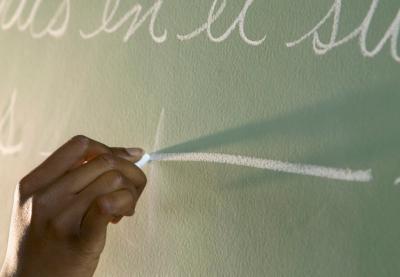First, let me say: I told my students no lies. I did my best to teach the state’s U.S. history standards in challenging but relatable ways, and to that end, I think I succeeded. My students learned some history, they tested well and they moved on, some to college, others to the workforce. But I failed to teach history with a sense of real urgency, the history that matters to living a life of intentional kindness, benevolence.
And, my fellow teachers, I think many of us are failing too. Let me explain.
I see the faces of the hateful Charlottesville rally participants, young white men and women, doing their best to recreate black-and-white scenes out of the textbook chapters on fascism, racism and anti-Semitism. I read reports of lawmakers futilely attempting to justify de jure discrimination against undocumented immigrants, queer folk and Muslim citizens. But more disheartening, I hear the quietness of those who say, “I am not like the rally participants, the unjust lawmakers, the discriminatory others.” And I witness the ease with which they distance themselves and return to their everyday lives. I see the passive fear and resignation on their faces at the grocery stores, post offices and movie theaters. I failed to do my part in preparing them to resist this fear and to, instead, embrace benevolence.
Deep down I knew that, somewhere along the way, someone would attempt to convince my students that they were missing out on what was “rightfully theirs”:
The immigrants are taking your high paying jobs.
The violence in our society is a result of taking Bibles out of the schools.
The women are emasculating you.
The gays are corrupting your family.
The poor are living the high life on your tax dollars.
More of anything for others means less for you.
It was only after I finished my tenure in the high school classroom that I realized my job was to do more than teach the subject matter. It was also my job to equip students with the critical capacities to resist and refuse these and other myths and lies. I understood the reflex of guilt that comes with the acknowledgment of privilege. Thus, I got caught up in not making my students feel guilty—for being white or heterosexual or Christian or economically privileged or able-bodied.
To their detriment, I neglected to make them feel deeply and utterly responsible. Whether through inaction, silence or direct involvement, they are responsible, not for the crimes of their ancestors but for the perpetuations of those crimes. And, as adults members of our society, they will be responsible for halting those perpetuations: for ending the continual disenfranchisement of people of color; for changing callous policies toward undocumented immigrants and their families; for challenging a culture that applauds and rewards violence against women—all women; for electing men and women who attend to the needs of the most vulnerable and marginalized among us rather than answering first to powerful lobbyists, big business and big churches.
Instead of emphasizing their responsibility, I led students to believe that those on the wrong side of history in their textbooks—the Christopher Columbuses, Andrew Jacksons, Robert E. Lees and Bull Connors—were capable of deeds that the rest of us are not because we are smarter or more tolerant or more technologically advanced. And the people on the right side of history—the Abraham Lincolns, Angelina and Sarah Grimkés and Rosa Parkses—were exceptionally good, but they happened into that goodness. I left out the agency and intentionality of their actions: their benevolence.
I regret not telling my students that the people on the wrong side are as commonplace now as they were then. I should have done all I could to convince my students that, if they are not careful and critical consumers of information, they could easily become, at worst, one of those on the wrong side and, at best, one of the complacent who do nothing as evil reigns.
And I should have explained that benevolence, like freedom and democracy, takes constant vigilance and action to put more of it into the world. That benevolence takes hard work. It’s thankless when done right, and worth chasing all of their days.
If you’re a teacher, I implore you to reach beyond your scripted curriculum and connect the injustices of the past to the injustices of the present. To teach personal and collective responsibility, to recognize the seduction of “security” and push against it in everyday lesson plans. You see, while I failed to recognize any of my students’ faces in the neo-Nazi rallies and white supremacist marches, I know that many of you did recognize former or current students. It is imperative that we all do better. One purpose of public K–12 education must be to teach the exercise of benevolence. To do less is to risk all of us ending up on the wrong side of the history textbook.
All of my past experiences teaching high school history have changed my thinking about the old adage “Those who do not know history are destined to repeat it.” They are chained to it, unable to move forward as they are bound to untruths. Telling no lies is not enough. Where there is no progressive learning, there is only decay. Where there is benevolence, there is hope.
Robinson, a former high school U.S. history teacher, is an assistant professor in the School of Social Service Administration at the University of Chicago.


0 COMMENTS